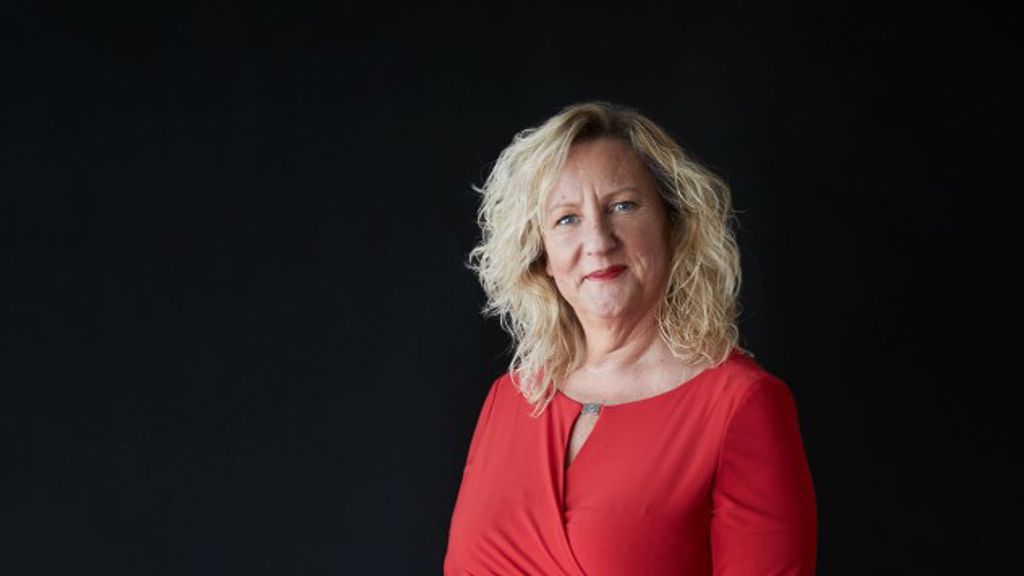One size fits none
Finansforbundet in Nordea wants greater curiosity and more dialogue about hybrid work. Vice president Mette Balck Mejlby appeals for managers to have talks with the employees to find a framework that makes sense locally
Irritation, envy and meaninglessness - joy, well-being and satisfaction. There are many emotions at stake when the conversation turns to how many days a week you as a Nordea employee have to come to the offices. A theme which has difficult dilemmas built into it, and which many union representatives and members reflect a lot about in their everyday life.
On the back of the corona pandemic, Nordea's management opened up the possibility for working in the way that made the most sense locally. That flexibility is for some limited now that most of us from 2024 at Nordea must work from their office or branch at least three days and at the most two days from home – the so-called hybrid model.
"The solutions must support both the needs of the individual and the needs of the team. It is our experience that there was a desire from the overall management to strengthen cohesion by getting people back to the offices – ‘we must find the right balance between me, we and us’, says Nordea's management. We don't disagree with that, but it has to make sense," says Mette Balck Mejlby, who is vice president of Finansforbundet in Nordea and president of the transnational collaboration of Nordea unions, Union in Nordea.
Excel registration and lowest common denominator
"There is a huge difference in how we work around the organisation. In many transnational teams, you may not have any colleagues who work in the same country as you. Then it can be difficult to see the point of having to come into the office three days a week to sit in a meeting room or in a 'phone box'."
On the other hand, colleagues in e.g. the branches meet many customers physically, so there is a greater need for – and more meaning in – coming in. There can also be differences in the size of one’s team that can make it easier or harder to ensure there is always someone present physically.
“Meeting colleagues physically strengthens the community and Nordea’s culture, and being together strengthens cohesion and team spirit, so there are definite advantages to meeting in the office or branch,” says Mette Balck Mejlby.

There are thus many dilemmas associated with hybrid work, and the organization and size of the individual teams should have a bigger impact on the framework.
“When most employees are imposed the same model for hybrid work, you risk ending up with the lowest common denominator, which does not quite suit anyone optimally. It can be experienced that the Excel registration, where you count the number of times employees come in, becomes more important than reflecting on whether the solution works and makes sense. We all have to make an effort to constantly make it a little better every day.”
The key to your own shop
Mette Balck Mejlby emphasizes that Finansforbundet in Nordea is in no way opposed to the employees coming into the office.
“But we appeal to the managers to be given the ‘key to their own shop’ to a greater extent, with a duty to involve the employees, so that the individual managers and teams are shown the trust that they themselves will find the solution that makes the most sense.”
Setting the framework more free is also about not becoming envious when others have different conditions than yourself.
“We know that one of the reasons why Nordea’s management decided to create a common 3-2 model for everyone was to avoid envy. In a large and diverse workplace like Nordea, we all have to practice being open-minded and that there is a difference in what can be done.”
Four long working days?
Flexible working conditions are also about other things than how many days you can work from home.
“It’s also about being able to place your working hours most appropriately, so that you can solve your tasks with due consideration of one’s life situation. This could be, for example, leaving early to pick up your children from day-care and then instead working in the evening when the children are put to bed. There are generally quite good opportunities here.”
Some of the opportunities for increased flexibility are secured through the collective agreement that Finansforbundet has negotiated with employers in the financial sector.
It can be children’s part-time, where parents with children can work reduced hours by agreement with the manager, time off in the event of a child’s illness, or senior part-time, where older employees with a certain seniority are entitled to reduced working hours. At the same time, it is important to ensure that even employees who do not have the opportunity for these special conditions also experience being able to have their needs met.
"The agreement also gives us the opportunity - in agreement with our manager - to work longer but fewer days, for example by spreading our 37 hours over 4 working days. Few people use the option, and of course it has to fit the team's tasks, but it would probably improve the work-life balance for some."
Yes to trust, no to control
She appeals to Nordea's management to loosen the grip instead of tightening it – and show more trust, so that the experience of control takes up less space.
"In this way, we create a workplace more attractive to the employees, so that more people go to work motivated, and fewer people want to change to get better conditions elsewhere. In Finansforbundet in Nordea, we believe that the managers in dialogue with the employees can find the best solutions.”
“Fortunately, Nordea is a diverse workplace. We have many different backgrounds and solve many kinds of tasks. A common framework that must apply to everyone can become an unnecessary and demotivating restriction,” says Mette Balck Mejlby.
Better furnishing of offices
Flexibility can also be a matter of which location you work from.
"There are more options than just either working from home or from your designated office. Nordea has offices in many locations, so why not use the premises that best suit the day in question?”
Mette Balck Mejlby concludes by acknowledging that Nordea does a lot to make the offices more attractive and adapt them to the needs of the employees.
"A lot has been done to organize the office environments so that they support the different types of work with, for example, quiet zones for reflection. But it still has to make sense for the individual and the team to show up at the office.”
What is your experience?
We would also like to hear from you about your experiences with flexible working. What works well and what doesn't? Send us an email at ffinordea@finansforbundet.dk
In the coming time, Finansforbundet in Nordea will put spotlight on the theme of 'flexibility' with various articles and other initiatives. It is the first of three themes that our senior union representatives have identified as the most important to focus on. The two upcoming themes are about job mobility and the union of the future.
A balanced work life
In Finansforbundet i Nordea’s policy programme one of the six visions is about a balanced work-life. Here are the conditions we work for:
- Members have influence on their work-life balance
- We strive to ensure members’ influence on their own work tasks
- We strive to ensure a good, flexible framework and conditions throughout one’s work life
- We strive for positive frameworks and conditions for physical and mental well-being
- We take the lead and motivate employees to have the courage to set boundaries
- We strive for a stress-free Nordea





